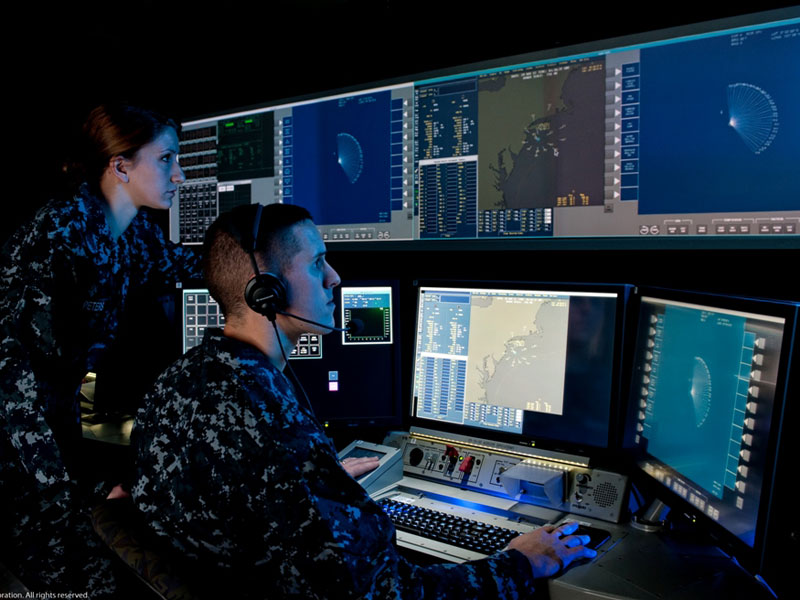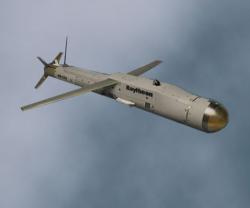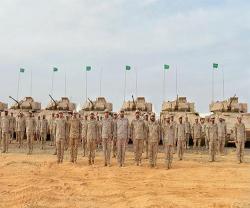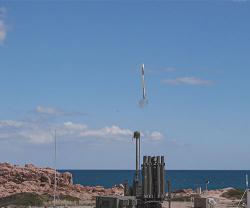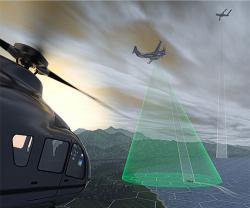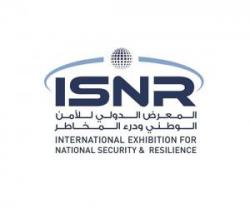Lockheed Martin Wins 2 U.S. Navy Contracts
06.03.2013 North America
The U.S. Navy has awarded Lockheed Martina 5-year, $100 million contract to provide combat system engineering services - including the design, development, integration, test and life cycle support - for all Aegis-equipped ships.
Lockheed Martin has partnered with the Navy for decades as the Aegis combat system engineering agent (CSEA), while evolving the system through nine technology baselines to outpace a wide array of dynamic and evolving threats.
“This program award validates Lockheed Martin as the Navy's choice for combat management systems,” said Dale P. Bennett, Executive Vice President of Lockheed Martin's Mission Systems and Training.
“Our team met the Navy's challenge to reduce costs and drive innovation into Aegis CSEA by increasing productivity, utilizing automated testing and analysis and increasing the role of small businesses.”
Aegis is the world's premier combat system and is the foundation for the Aegis Ballistic Missile Defense capability. Aegis-equipped ships are multi-mission surface combatants that can simultaneously attack land targets, submarines and surface ships while automatically implementing defenses to protect the fleet against aircraft and missiles.
Aegis is also the combat system of choice for the navies of Australia, Japan, Norway, the Republic of Korea and Spain. More than one hundred Aegis-equipped ships are in service around the globe. They have more than 1,200 years of at-sea operational experience and have launched more than 3,800 missiles in tests and real-world operations.
Lockheed Martin developed its CSEA offering with its partners Mission Solutions Engineering, General Dynamics Advanced Information System and Integrated Defense Technologies. Lockheed Martin will perform the CSEA work at its Moorestown, New Jersey facility.
Lockheed Martin has also received a $71 million Long Range Anti-Ship Missile (LRASM) modification contract from the U.S. Navy to conduct air- and surface-launched flight tests and other risk reduction activities.
Under this contract, an additional air-launched LRASM flight test will be conducted from a B-1B in 2013. There are already two air-launched flight tests scheduled for this year as part of the Phase 2 LRASM contract awarded in 2010.
The contract also includes 2 surface-launched LRASM flight tests scheduled for 2014. Risk reduction efforts, such as electromagnetic compatibility testing of the missile and follow-on captive carry sensor suite missions, are also included under the contract.
LRASM is an autonomous, precision-guided anti-ship standoff missile based on the successful JASSM-ER, and is designed to meet the needs of U.S. Navy and Air Force warfighters. LRASM is in development with the Defense Advanced Research Projects Agency and the Office of Naval Research.
Armed with a proven penetrator and blast-fragmentation warhead, LRASM cruises autonomously, day or night, in all weather conditions. The missile employs a multi-modal sensor, weapon data link, and an enhanced digital anti-jam Global Positioning System to detect and destroy specific targets within a group of ships.
Lockheed Martin has partnered with the Navy for decades as the Aegis combat system engineering agent (CSEA), while evolving the system through nine technology baselines to outpace a wide array of dynamic and evolving threats.
“This program award validates Lockheed Martin as the Navy's choice for combat management systems,” said Dale P. Bennett, Executive Vice President of Lockheed Martin's Mission Systems and Training.
“Our team met the Navy's challenge to reduce costs and drive innovation into Aegis CSEA by increasing productivity, utilizing automated testing and analysis and increasing the role of small businesses.”
Aegis is the world's premier combat system and is the foundation for the Aegis Ballistic Missile Defense capability. Aegis-equipped ships are multi-mission surface combatants that can simultaneously attack land targets, submarines and surface ships while automatically implementing defenses to protect the fleet against aircraft and missiles.
Aegis is also the combat system of choice for the navies of Australia, Japan, Norway, the Republic of Korea and Spain. More than one hundred Aegis-equipped ships are in service around the globe. They have more than 1,200 years of at-sea operational experience and have launched more than 3,800 missiles in tests and real-world operations.
Lockheed Martin developed its CSEA offering with its partners Mission Solutions Engineering, General Dynamics Advanced Information System and Integrated Defense Technologies. Lockheed Martin will perform the CSEA work at its Moorestown, New Jersey facility.
Lockheed Martin has also received a $71 million Long Range Anti-Ship Missile (LRASM) modification contract from the U.S. Navy to conduct air- and surface-launched flight tests and other risk reduction activities.
Under this contract, an additional air-launched LRASM flight test will be conducted from a B-1B in 2013. There are already two air-launched flight tests scheduled for this year as part of the Phase 2 LRASM contract awarded in 2010.
The contract also includes 2 surface-launched LRASM flight tests scheduled for 2014. Risk reduction efforts, such as electromagnetic compatibility testing of the missile and follow-on captive carry sensor suite missions, are also included under the contract.
LRASM is an autonomous, precision-guided anti-ship standoff missile based on the successful JASSM-ER, and is designed to meet the needs of U.S. Navy and Air Force warfighters. LRASM is in development with the Defense Advanced Research Projects Agency and the Office of Naval Research.
Armed with a proven penetrator and blast-fragmentation warhead, LRASM cruises autonomously, day or night, in all weather conditions. The missile employs a multi-modal sensor, weapon data link, and an enhanced digital anti-jam Global Positioning System to detect and destroy specific targets within a group of ships.
Previous PostBoeing Joins UBC in Composite Materials Research
Latest news
Latest events
ISNR Abu Dhabi 2024
21 - 23 May 2024ADNEC Centre Abu Dhabi - United Arab EmiratesEUROSATORY 2024
17 - 21 Jun 2024Paris Nord Villepinte - FranceFarnborough International Airshow
22 - 24 Jul 2024Farnborough - United KingdomMiddle East Special Operations Commanders Conference (MESOC)
02 Sep 2024Aqaba - Jordan

